T35 Mentors
Our mentors are recruited based on their expertise and experience working with graduate students. Members of this multidisciplinary mentoring team span 15 Departments and Schools across the University of South Carolina and include faculty from diverse backgrounds recruited largely on research synergy with the program focus areas. They provide students with experiential learning using ongoing NIAID-funded Big Data research projects that utilize 1 or more of 5 large existing data sources (NIH COVID-19 Cohort Collaborative [N3C] synthetic Data, SC statewide HIV data, SCCOVID-19 data, VA system-wide HIV data, and VA COVID-19 data). Read on to learn about our outstanding mentors.

Swann Arp Adams, Ph.D., MS, FACE
Professor at the Department of Epidemiology and Biostatistics and College of Nursing (Dual Appointment)
Dr. Adams’ research focus is cancer health disparities across the cancer continuum from screening to treatment to survival. Dr. Adams has over 100 publications which demonstrate evidence of her expertise in quantitative research methods including use of complex data systems and survival analyses relevant to the current application’s area of focus. As a cancer disparities epidemiologist, trainee research activities will focus on cancers caused by human papillomavirus (HPV) such as cervical and oropharyngeal cancers and the impacts of various infectious diseases among cancer survivors who may be at increased risk due to their immunocompromised status. Dr. Adams has several large datasets available from which various research projects are either ongoing or can be developed to examine specific hypotheses related to these areas. In addition, she has experience in working in several public use datasets such as the Behavioral Risk Factor Surveillance Survey, the National Ambulatory and Medical Care Survey, and the South Carolina Central Cancer Registry. Another area of opportunity with her research lab is utilizing Geographic Information System (GIS) approaches to examine the effect of neighborhood-level determinants on health within the context of cancer. In this way, students can develop research questions addressing how our physical environment influences cancer health.
More Information

Michael W Beets, Ph.D
Distinguished Professor at the Department of Exercise Science
Dr. Beets has a broad background in public health, childhood obesity prevention and treatment, physical activity and nutrition, and measurement. Dr. Beets has an extensive background in mentoring pre- and post-doctoral students, and early career faculty. Dr. Beets plans to include potential trainees in one of the following projects; (1) a project to collect information on where children go during summer, what they do when they get there, and how their behaviors (physical activity, sedentary, sleep, and diet) during summer depart from these behaviors during the school year and how these differ between children from low and high income households, (2) a project to address cost barriers to participating in summer programs, hypothesized to lead to marked improvements in children’s obesogenic behaviors and a reduction in excessive, unhealthy weight gain over summer..
More Information

John Brooks, Ph.D
Professor and South Carolina SmartState Endowed Chair at the Department of Health Services Policy and Management
Dr. Brooks is a health economist focusing on estimating treatment effectiveness using observational healthcare databases. He is presently the Director of Center for Effectiveness Research in Orthopedics (CERortho) which is a collaborative effort between the USC and Prisma Health to promote comparative effectiveness research (CER) in orthopedic care.
More Information

Monique J. Brown, Ph.D., MPH
Assistant Professor at the Department of Epidemiology and Biostatistics
Dr. Brown’s research interests are in HIV intervention and prevention; childhood trauma; social, behavioral and mental health; and aging. She is interested in these as separate and intersecting areas of study. Dr. Brown was awarded a K01 award from the National Institute of Mental Health to study the impact of childhood sexual trauma on aging with HIV, and to develop an intervention addressing childhood sexual trauma with the aim of improving HIV treatment outcomes among middle-aged and older adults living with HIV. Trainees will be included in conducting literature reviews, psychosocial and behavioral intervention research, primary data collection and analysis, and secondary data analysis. These projects will examine HIV-related research, trauma, aging, and cognition.
More Information

Sayward Harrison, Ph.D
Assistant Professor at the Department of Psychology
Dr. Harrison is a health psychologist who studies psychosocial and behavioral aspects of infectious disease. At the University of South Carolina, she runs the Healthy Futures Lab in the Department of Psychology, where she and her students investigate health conditions including human immunodeficiency virus (HIV), human papillomavirus (HPV), and Covid-19. She is currently funded by the National Institutes of Health (NIH) to develop a mobile Health (mHealth) intervention to improve engagement in care and medication adherence for youth living with HIV in the southern United States. She also led a project funded by the Centers for Disease Control and Prevention (CDC) to reduce rural-urban disparities in HPV vaccination through the school-based INVEST intervention. Most recently, Dr. Harrison has received a training grant from the Health Services and Resources Administration (HRSA) to develop a new center to build capacity among mental health professionals to respond to the current opioid epidemic. Trainees will work with Dr. Harrison to conduct scoping and/or systematic reviews and to analyze data from current projects on HIV, HPV, and substance use disorder.
More Information

Rhonda G. Hughes, PhD, MHS, RN, FAAN
Associate Professor at the College of Nursing and Director for Nursing Leadership
Dr. Hughes’ research works focus on patient safety and quality improvement, big data research, health care administration, health systems, policy and program evaluation, outcomes research and palliative and end of life care. Dr. Hughes has developed and taught graduate students on topics including statistics, health policy, quality and patient safety, health informatics, research methods, and leadership.
More Information
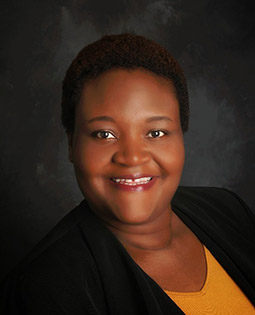
Mufaro Kanyangarara, Ph.D
Assistant Professor at the Arnold School of Public Health
Dr. Mufaro Kanyangarara is an assistant professor of Epidemiology in the Arnold School of Public Health. Her research focuses on infectious diseases affecting women and children in low and middle income countries. She has experience applying statistical and epidemiological methods to address global health problems.
More Information

Xiaoming Li, Ph.D
SmartState Endowed Chair for Clinical Translational Research and Professor at the Department of Health Promotion, Education, and Behavior
Over the last decade, Dr. Li has been a PI or site PI on 31 research projects (including 19 NIH funded) and a Co-investigator (Co-I) on over 37 research projects (including 22 NIH funded). He has published over 560 peer-reviewed articles, book chapters, and special reports. In addition to his experience and expertise in HIV behavioral prevention and care, Dr. Li is knowledgeable about and proficient in advanced data analytics, including Big Data analytics. Dr. Li is also the Interim Chief Population Health and Prevention Officer (formerly Chief Analytics Officer) for HSSC, a statewide healthcare research collaborative.
More Information
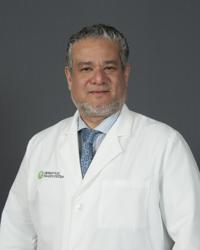
Alain Litwin, MD
Professor and Vice Chair of Internal Medicine at USC School of Medicine-Greenville
Dr. Litwin is board certified in addiction medicine and internal medicine and has been providing substance use disorder and medical care (including HIV and HCV) to people with opioid use disorders with complex social, psychiatric and medical needs within an integrated primary care and opiate agonist treatment program for 18 years. With funding from NIDA, PCORI, CDC, SAMHSA, AHRQ, CMS, Robert Wood Johnson Foundation, New York City, New York State, and industry, Dr. Litwin’s research, clinical and mentoring activities are focused on developing and studying models of co-located care for PWIDs with concurrent infectious diseases.
More Information
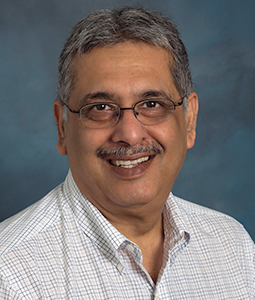
Anwar T Merchant, Sc.D., MPH, DMD
Professor and Director, Curriculum Development at the Department of Epidemiology and Biostatistics
Dr. Merchant’s research is at the intersection of chronic disease, nutrition, and oral health. He is currently using the potential outcomes approach to evaluate the effect of periodontal treatment on glycemic control among individuals with diabetes and diabetes incidence among those free of diabetes using virtual cohorts formed by combining electronic medical and dental records of individuals enrolled in Kaiser Permanente’s plan for Medicare recipients in Georgia. Dr. Merchant received NIH funding to evaluate the effect of periodontal treatment on glycemic control among individuals with diabetes using causal inference methods in a virtual cohort formed with electronic health records from individuals receiving care at the VA.
More Information

Caroline Rudisill, Ph.D., MSc
Associate Professor at the Department of Health Promotion, Education and Behavior
Dr. Rudisill is a health economist who has expertise in cost-effectiveness analysis and economic evaluation as well as applied research related to health behaviors. She examines individual decision-making regarding health-related behaviors, in particular treatment choices and preventative behaviors in the face of risk such as using financial incentives with patients in primary care and prevention settings, seeing how risk perceptions impact vaccination uptake and understanding how people behave in the face of health-related risks such as avian flu. Dr Rudisill works closely with Prisma Health, the largest health system in South Carolina, in her research. Potential research activities for trainees include COVID-19 survey data that covers 4 countries – involving work with risk perceptions and behaviors.
More Information
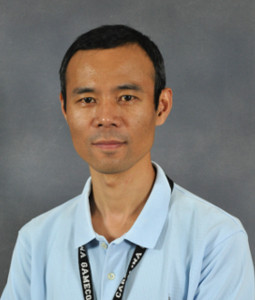
Qian Wang, Ph.D
Professor at the Department of Chemistry and Biochemistry
The research in Wang group is divided into four distinctive but inter-connected topics: (1) chemoselective functionalization of bionanoparticles (BNPs); (2) self-assembly of BNPs towards materials development; (3) cell-recognition study with BNP-assemblies; and (4) fluorogenic reaction for protein imaging and recognition. All these researches point to one direction: to build three-dimensional programmable scaffolds that mimic the native extracellular matrices and can be used to probe the cellular activities. Potential activities for trainees will include using data science method to analyze proteomics data for disease diagnosis and treatment, and using AI to predict enzyme structure and activity.
More Information

Sharon Weissman, MD
Professor in Clinical Medicine and Interim Chair for the Department of Medicine at USC School of Medicine-Columbia
Dr. Weissman has over 25 years of experience in both research and practice related to HIV prevention, treatment, and care. Since joining the faculty at USC, she has collaborated with the USC School of Public Health, SC DHEC, and the SC RFA to access healthcare and HIV surveillance data to conduct research examining disparities in care, with a focus on HIV infected in rural SC as well as on antimicrobial usage in SC. Currently, Dr. Weissman is affiliated with the USC BDHSC and works closely with Drs. Li, Olatosi, and Zhang on the NIAID Big Data HIV and COVID-19 studies.
More Information
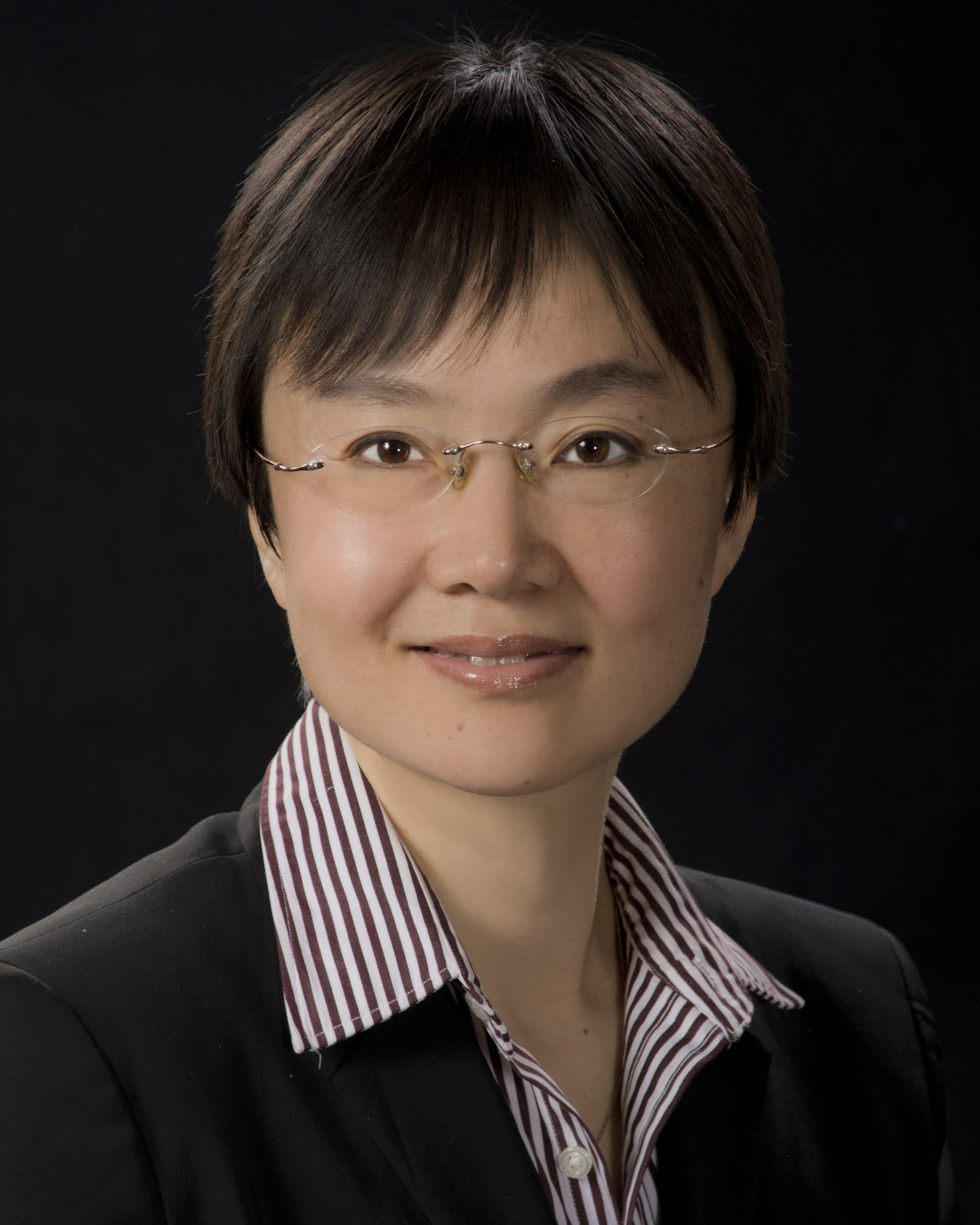
Dezhi Wu, Ph.D
Associate Professor at the Department of Integrated Information Technology
Dr. Wu is a passionate interdisciplinary scholar in the information technology field, especially as it pertains to the intersection of human-computer/AI interaction, health informatics, health IT, cybersecurity, biometrics, and other emerging technologies. Her academic work explores how users interact with computer systems, AI-driven technologies, robotics, and IoT smart devices to accomplish their goals. Her passion also extends to creating innovative intelligent user interfaces (UIs), user experiences (UX), and systems. She designs and evaluates novel transformative experiences for user engagement and behavior changes that fill the gaps to address socio-technical challenges between different types of users (i.e., patients, health providers, STEM learners, and cybersecurity trainees) in multiple research domains, such as healthcare, cybersecurity, and education. Potential research activities for trainees include human-computer/AI interaction, health IT, health informatics, and social media analytics associated with substance use disorder, vaping, maternal health, and medicine.
More Information

Jiajia Zhang, Ph.D
Professor at the Department of Epidemiology and Biostatistics
Dr. Zhang is Professor and Division Director of Biostatistics in the Department of Epidemiology and Biostatistics in USC’s ASPH. She is also a core CHQ faculty member and the BDHSC EHR Core Director. Dr. Zhang’s research focuses on developing methodologies for analyzing electronic health data, including the SC Cancer Registration data set, SC HIV data set, Women’s Health Initiative data set, NHANES III data set, SEER data set, geographic data sets from Census tract information, and the Aerobics Center Longitudinal Study data set. Dr. Zhang has cumulated extensive experience in Big Data sets in epidemiological studies and statistical methodological work. She has published more than 160 statistical methodology and applied statistics papers and was the PI on 5 NIH-funded grants in methodologies development and Co-I on many NIH grants as the core biostatistician, including an NIH-funded COBRE Center, CAM Center, R01, R21 and R15. Currently, Dr. Zhang is Co-I with Dr. Olatosi on both NIAID Big Data HIV and COVID-19 studies and is familiar with the mechanism in the data-linking and analysis procedure. Potential research activities for trainees will include data analysis, statistical modelling and data and model interpretation.
More Information
